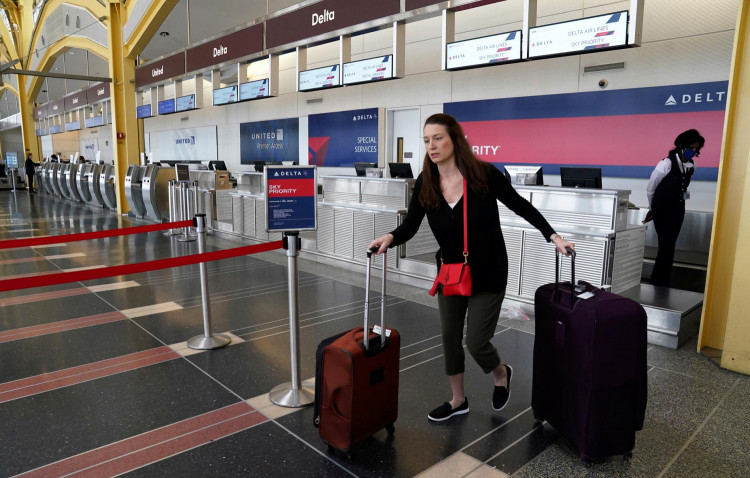Delta Air Lines announced on Monday that it would resume its flight operations to several key destinations starting June despite the coronavirus pandemic, including some Trans-Atlantic and Caribbean routes.
As a result of the global health crisis, global airlines have been hit hard with an unprecedented decline in demand, although some recent indicators show that US travel may have reached rock bottom.
On Friday, the U.S. Transportation Security Administration screened 250,467 passengers, the first time since March 24 the figure has breached 250,000, according to daily figures on its website.
Delta Airlines' June flight will be reduced 85 percent year on year, but it is bringing back a number of destinations that were halted in the early days of the crisis.
Delta Airlines will reopen flights to China, offering service from Detroit and Seattle to Shanghai pending go-signal from federal aviation authorities, as well as restart some service to South Korea to connect with Korean partner of the airline.
Delta Air will also resume operations to Frankfurt, Amsterdam, London and Paris, as well as to Tel Aviv and Lagos in a limited service.
The airline disclosed that while its flight schedule is still significantly on a minimal capacity for June compared to 2019, it will restart more local operations in New York and Atlanta as well as to the Latin America, the Caribbean, and other international hubs.
While the TSA's screening is far below the 2.66 million passengers screened on the same day in 2019, the figure is significantly bigger than the mid-April low of 87,534.
The airline is adding about 100 more daily flights in June compared to May, even as its overall second-quarter schedule is seen to be 85 percent lower than last year.
Delta's planned June resumption of flights offers at least a ray of optimism for investors who have seen the company's stocks plummet 62 percent year to date. Delta has sufficient money to withstand a travel crisis through summer but will ultimately need to see demand return to be able to avoid a liquidity crash.
The airlines' move is part of a long-term bet that chief executive officer Ed Bastian presented to stakeholders last month: that clients' perceptions of safety will be critical in resuscitating more routine travel, and that they will be willing to pay for comfort.
Meanwhile, adding more flights could help provide more sales but also expenditures. Delta Airlines, which does not see air travel to bounce back for two or three years, has stated that it intends to cut in half its daily cash burn to $50 million by June.





